-
 +12 +1
+12 +1The Chinese scientist who claims he made CRISPR babies has been suspended without pay
A Chinese researcher who claims to have created the first gene-edited babies, He Jiankui of the Southern University of Science and Technology (SUST), in Shenzhen, is now facing investigation over whether the experiment broke Chinese laws or regulations. On Sunday, MIT Technology Review was first to disclose a secretive project in China to produce children whose genomes had been modified to make them resistant to HIV.
-
 +11 +1
+11 +1The CRISPR Baby Scandal Gets Worse by the Day
The alleged creation of the world's first gene-edited infants was full of technical errors and ethical blunders. Here are the 15 most damning details.
-
 +15 +1
+15 +1Why Are Scientists So Upset About the First Crispr Babies?
A Chinese scientist recently claimed he had produced the world’s first gene-edited babies, setting off a global firestorm. If true — the scientist has not yet published data that would confirm it — his actions would be a sensational breach of international scientific conventions. Although gene editing holds promise to potentially correct dangerous disease-causing mutations and treat some medical conditions, there are many safety and ethical concerns about editing human embryos.
-
 +4 +1
+4 +1Hybrid rice engineered with CRISPR can clone its seeds
After more than 20 years of theorizing about it, scientists have tweaked a hybrid variety of rice so that some of the plants produce cloned seeds. No plant sex necessary. The feat, described December 12 in Nature, is encouraging for efforts to feed an increasingly crowded world.
-
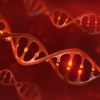 +23 +1
+23 +1New CRISPR technique could prevent obesity without cutting or editing a genome
An exciting new study has demonstrated how a new kind of CRISPR technique can increase the expression of certain genes, instead of the more traditional approach of cutting or editing DNA. The method was tested in mice, targeting genes associated with hunger, and stopped the animals becoming obese.
-
 +20 +1
+20 +1The Most Surprising Tech Breakthroughs of 2018
Development across the entire information technology landscape certainly didn’t slow down this year. From CRISPR babies, to the rapid decline of the crypto markets, to a new robot on Mars, and discovery of subatomic particles that could change modern physics as we know it, there was no shortage of headline-grabbing breakthroughs and discoveries. As 2018 comes to a close, we can pause and reflect on some of the biggest technology breakthroughs and scientific discoveries that occurred this year.
-
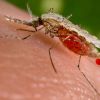 +22 +1
+22 +1Using gene drives to control wild mosquito populations and wipe out malaria
What is the deadliest animal on earth? It’s a question that brings to mind fearsome lions, tigers, sharks and crocodiles. But the answer is an animal that is no more than 1 centimeter long. A few mosquito species, out of the thousands that populate different environments, are the deadliest animals on earth. Anopheles mosquitoes alone, transmit malaria through their bite and annually infect more than 200 million people, and are responsible for 400,000 deaths per year, of which 70 percent are children under the age of 5.
-
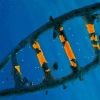 +16 +1
+16 +1CRISPR Just Got More Powerful With an "On” Switch
For all its gene-editing prowess, mechanistically CRISPR is a bit like a power tool with a broken “off” switch. Hear me out: the entire CRISPR machinery is designed in a test tube, and once constructed it’s always on. When introduced into animals or humans, CRISPR is set to roam the entire body, seeking its target gene to edit or destroy until it loses steam and gets metabolized by the body.
-
 +20 +1
+20 +1World’s First Mammal CRISPR/Cas-9 Genetic Inheritance Control Achieved
CRISPR/Cas9 is a form of genetic editing that holds a lot of promise, such as the killing of cancer cells, but also comes with some hefty warnings, such as that it may cause DNA damage. So far, scientists have been using CRISPR/Cas9 in a variety of plants and animals to edit genetic information, including attempts to practice what is called 'active genetics'.
-
 +12 +1
+12 +1Virus lurking inside banana genome has been destroyed with CRISPR
Genome editing has been used to destroy a virus that lurks inside many of the bananas grown in Africa. Other teams are trying to use it to make the Cavendish bananas sold in supermarkets worldwide resistant to a disease that threatens to make it impossible to grow this variety commercially in future.
-
 +22 +1
+22 +1CRISPR gene editing makes stem cells 'invisible' to immune system
UC San Francisco scientists have used the CRISPR-Cas9 gene-editing system to create the first pluripotent stem cells that are functionally "invisible" to the immune system, a feat of biological engineering that, in laboratory studies, prevented rejection of stem cell transplants. Because these "universal" stem cells can be manufactured more efficiently than stem cells tailor-made for each patient—the individualized approach that dominated earlier efforts—they bring the promise of regenerative medicine a step closer to reality.
-
 +10 +1
+10 +1Faster, better, cheaper: the rise of CRISPR in disease detection
An epidemic of Lassa fever in Nigeria that has killed 69 people this year is on track to be the worst ever recorded anywhere. Now, in the hope of reducing deaths from Lassa in years to come, researchers in Nigeria are trying out a new diagnostic test based on the gene-editing tool CRISPR. The test relies on CRISPR’s ability to hunt down genetic snippets ― in this case, RNA from the Lassa virus ― that it has been programmed to find.
-
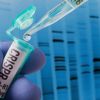 +12 +1
+12 +1Scientists use CRISPR to make stem cells invisible to immune system
Researchers at UC San Francisco used CRISPR to modify stem cells in a way that makes them essentially invisible to the immune system.
-
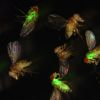 +15 +1
+15 +1CRISPR reveals the secret life of antimicrobial peptides
When it comes to the immune system, we usually think about lymphocytes like B and T cells or macrophages going on constant seek-and-destroy missions against invading pathogens like bacteria and viruses. But our immune system actually includes a lesser-known and less-studied first line of defense referred to as “innate immunity”.
-
 +11 +1
+11 +1Nessa Carey: ‘The most worrying thing about gene editing is that it’s really easy’
A new technique to alter DNA is offering humans the ability to take control of food, disease and our own reproduction as never before. The workhorse of this technology is Crispr-Cas9, often described as a pair of “molecular scissors”, which can be directed to a specific part of a genome and used to make changes ranging from deactivating a gene to correcting a genetic typo or even inserting new genetic material.
-
 +24 +1
+24 +1Could Gene Editing Cure Herpes One Day?
Herpes is shockingly common. Recent estimates suggest at least half of all Americans have HSV-1, or oral herpes, which usually manifests as cold sores on or around one’s mouth, but can spread to someone else’s genitals through oral sex or to other parts of the body. Up to a fifth of all Americans have HSV-2, or genital herpes, although 87 percent of HSV-2 cases are never clinically diagnosed, thanks to the fact that many people infected by the virus never develop symptoms.
-
 +19 +1
+19 +1Crispr Gene Editing Could One Day Cut Away Human Pain
FOR JO CAMERON, it takes the sight of blood or the smell of her own flesh burning for her to know that something is very wrong. As the 71-year-old Scottish woman recounted to The New York Times earlier this week, she has lived a life virtually free of pain, fear, and anxiety, thanks to a missing stretch of DNA. Doctors discovered there was something different about Cameron when she came in for surgery and turned down painkillers after the nerve blocker from her operation wore off.
-
 +34 +1
+34 +1CRISPR-Cas3 innovation holds promise for disease cures, advancing science
A Cornell researcher, who is a leader in developing a new type of gene editing CRISPR system, and colleagues have used the new method for the first time in human cells – a major advance in the field. The new system, called CRISPR-Cas3, can efficiently erase long stretches of DNA from a targeted site in the human genome, a capability not easily attainable in more traditional CRISPR-Cas9 systems. Though robust applications may be well in the future, the new system has the potential to seek out and erase such ectopic viruses as herpes simplex, Epstein-Barr, and hepatitis B, each of which is a major threat to public health.
-
 +3 +1
+3 +1CRISPR gene-editing creates wave of exotic model organisms
Joseph Parker has wanted to know what makes rove beetles tick since he was seven years old. The entomologist has spent decades collecting and observing the insects, some of which live among ants and feed on their larvae. But without tools for studying the genetic and brain mechanisms behind the beetles’ behaviour, Parker focused his PhD research on Drosophila fruit flies — an established model organism.
-
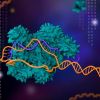 +11 +1
+11 +1A Deceptively Simple Tweak to CRISPR Makes It 50 Times More Accurate
CRISPR may be the premiere gene editing progeny poised to upend natural genomes and erase inherited diseases. But since its inception, one thing has always stood in the way: accuracy. Back in 2017, a contentious report using CRISPR found massive off-target edits in mice, in which the tool went rogue to snip away at innocent genes.
Submit a link
Start a discussion




















